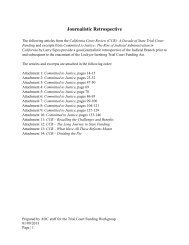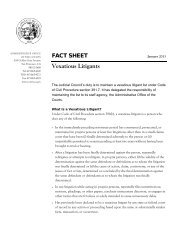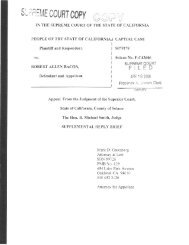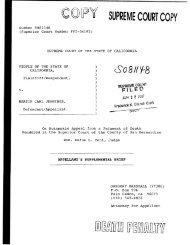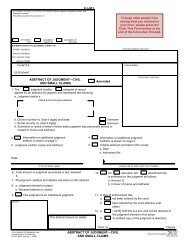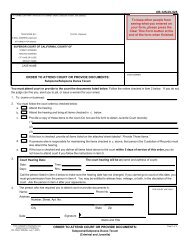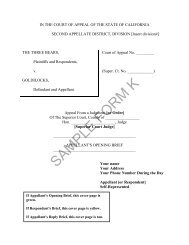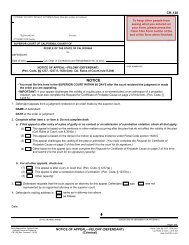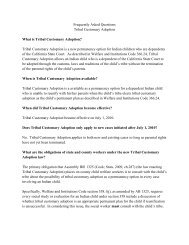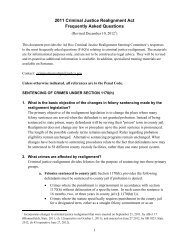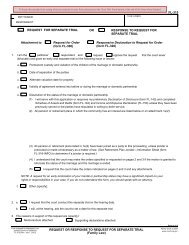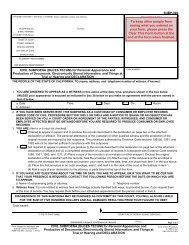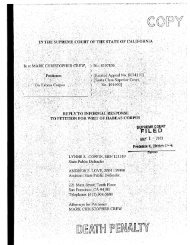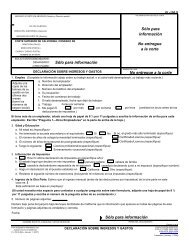Appellant, William Satele, Reply Brief - California Courts - State of ...
Appellant, William Satele, Reply Brief - California Courts - State of ...
Appellant, William Satele, Reply Brief - California Courts - State of ...
You also want an ePaper? Increase the reach of your titles
YUMPU automatically turns print PDFs into web optimized ePapers that Google loves.
XV<br />
THE TRIAL COURT COMMITTED REVERSIBLE<br />
ERROR BY EXCUSING A PROSPECTIVE JUROR FOR CAUSE<br />
DESPITE HER EXPRESSED WILLINGNESS TO CONSIDER<br />
IMPOSING THE DEATH PENALTY<br />
The trial court committed reversible error under Witherspoon v. Illinois<br />
(1968) 391 U.S. 510 and Wainwright v. Witt (1985) 469 U.S. 412, violating<br />
appellant's rights to a fair trial and impartial jury, and reliable penalty<br />
determination as guaranteed by the Fifth, Sixth, Eighth, and Fourteenth<br />
Amendments, by excusing a prospective juror for cause despite her willingness to<br />
fairly consider imposing the death penalty.<br />
In Witherspoon v. Illinois, supra, 391 U.S. 510 the Supreme Court<br />
established the bedrock principle that a sentence <strong>of</strong> death violated the Sixth and<br />
Fourteenth Amendments where potential jurors were excluded merely because<br />
they voiced general objections to the death penalty, so long as the potential juror's<br />
reservations about capital punishment would not prevent him or her from making<br />
an impartial decision, and the potential juror indicated that he or she could obey<br />
the oath to follow the law. (Id. at p. 513.)<br />
Adams v. Texas (1980) 448 U.S. 38 explained that a juror could not be<br />
excused because <strong>of</strong> his views unless the record showed him unable to follow the<br />
law as set forth by the court, and that it is the state's burden to prove the juror<br />
meets the criteria for dismissal. (Id. at p. 48, see also People v. Stewart (2004) 33<br />
Cal.4th 425 - the burden <strong>of</strong> demonstrating this standard is satisfied as to each <strong>of</strong><br />
the challenged jurors is on the prosecution.)<br />
A. <strong>Appellant</strong>s Have Not Forfeited This Claim.<br />
Respondent claims the constitutional aspects <strong>of</strong> this Issue are forfeited<br />
because they were not raised at trial. (RB at p. 197.)<br />
Under the principles discussed more fully above (ante, at pp. 21-27), this<br />
issue is not waived. These principles include the fact that an appellate court has<br />
126



